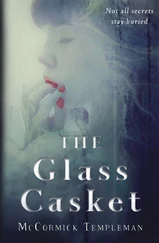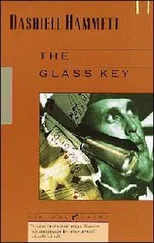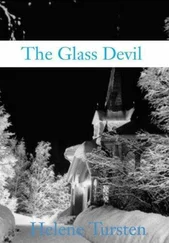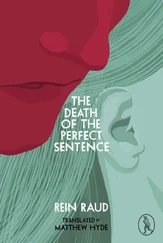—From Veressa Metl’s Glossary of Baldlandian Terms
THE GLACIER RETREATED to the edges of Lake Cececpan and then stopped, planting its frozen feet into the earth below and turning a cold shoulder to the sun overhead. The Glacine Age would draw back no farther. And as the glaciers cemented their hold, their hard surfaces shining starkly only three miles from Nochtland, the borders of the Ages were redrawn.
The vast, depopulated Glacine Age stretched from the southern edges of Nochtland to the very tip of the continent. Late Patagonia had disappeared. Much of the southern Baldlands had vanished as well. Where the Ages met, three different cities lay abandoned, their streets emptied by desertion and disaster. Below ground, the mineral city remained silently calcifying, its high towers shining in the light cast by the botanist’s trees. Above the ice, in the northernmost city of the Glacine Age, the empty buildings surrounded the ruins of the great pyramid like silent mourners. And in Nochtland a strange hush had fallen upon the once busy streets.
Thousands upon thousands had departed, fleeing the glacier’s advance. In the weeks that followed, they walked and rode on until rumors began to reach them that the great change had concluded. Some, hearing this, stopped where they stood; they put down their packs, unhitched their horses, and rested. A short respite became a longer one, until many simply began to rebuild their lives on the very spot where they had stopped. New towns sprang up in a long, meandering line stretching northward.
But others could not believe that the glacier had truly halted its advance, and they walked on, heading farther and farther north until they found themselves in the Northern Baldlands. There, among strange people who had never even heard of the glaciers, they threw down their belongings with relief and tried to forget the catastrophe that had driven them from their now-vanished homes.
Still others had lost more than their homes. It was in the Lachrima’s nature to seek solitude, and so it appeared at first that the thousands of Lachrima to emerge from the Glacine Age had disappeared as soon as they had come to light. But they had not disappeared. Many people who had once lived in Xela, or the high cities of Late Patagonia, now wandered the new terrain as faceless creatures; dreading human contact, they haunted the edges of every town on the route from the Baldlands to New Occident.
As the boldevela neared Nochtland, there were some on board who were thinking of the Lachrima’s fate. Sophia, after dutifully eating and drinking what Grandmother Pearl had put before her, listened to the dull, distant wailing and thought about Blanca. Shadrack was found, Nochtland was safe, and New Occident lay waiting for them; and yet, unaccountably, she felt an uneasy grief. Blanca’s cry might have saved her, driving her from the pyramid in time—but that cry had also found its way into her heart. She had no wish to look at the map that had been the sole piece of the pyramid to survive. Handing it over to Shadrack, she sat at the foot of his bed holding the silk scarf that had once been Blanca’s veil. As she twisted the thin fabric between her fingers, she thought about the scars that it had served to conceal. Sophia realized that the more she had seen of the Lachrima’s scars, the less they had terrified her. They moved as Blanca spoke; they reflected her thoughts and emotions just as clearly as a mouth, nose, and eyes. There was even something beautiful about the way those scars had conveyed the cold, dignified determination that lay behind them.
“Sophia,” Shadrack said now. “You need to get some sleep.”
“I’m not sleepy. I’ll just stay here with you.”
“Why don’t you go ask Peaches which room to use, and just try putting your head down. If you like, send Veressa to keep me company—she’ll want to see this.”
It was easier to agree. Sophia found the Metls looking out over the side of the boldevela at the icy water below. “Veressa,” she said. “Shadrack wants to show you the map—the one I brought from the pyramid.”
Veressa eyed her thoughtfully. “Had enough of maps for one day?”
“Yes. I think so.”
“Very sensible.” The cartologer rested her hand briefly on Sophia’s shoulder. “I’ll go down and see him.”
As she left, Martin called, “Look at this, Sophia.” She joined him and saw that the wheels of the boldevela were once again visible. The waters had grown shallow. The ship shuddered as the wheels made ground, and Burr shouted orders to the pirates adjusting the sails.
“We’re almost at the Nochtland gates,” Sophia said with surprise, looking up with at the high walls.
“Yes, almost there,” Martin said.
“Why are we going back?” She looked warily at the unguarded gates, which stood ominously ajar. “What about you and Theo?”
“We’ll be fine. The last thing anyone cares about now is a few iron bones.”
“Burr wants to go back to look for Mazapán,” Theo himself said, joining them. “Everyone says he’s probably gone, but Burr says no.”
The boldevela rolled through the open gates, and everyone aboard fell silent. Nochtland was deserted. The fountains and canals still ran with water, and the crowded gardens still leaned out into the sunlight, but there were no people to be seen. “Everyone’s gone,” Sophia said.
“Oh, I’m sure they’ll return,” Martin replied, “once they realize the waters are receding.”
As she looked over the desolate city, she found it hard to believe.
“Look, there’s someone!” Theo said, pointing to a woman who watched them from a window.
The woman waved. “Has the storm passed?”
“Yes!” Martin shouted, waving back. “It’s safe now.” He turned to Sophia. “You see—not everyone is gone.”
The boldevela moved slowly through the streets until it reached the broad avenue at the city center and rumbled to a stop just outside the palace. To Sophia’s astonishment, the palace gates too stood open. There was not a guard in sight. “We’re home!” Martin exclaimed.
While Burr and Theo went in search of Mazapán, Calixta accompanied Martin and Veressa to the palace. Sophia was aware of the pirates resting and talking to one another on the deck, but her mind was miles away, watching Blanca’s face contort as she pushed the heavy stone over the edge of the balcony. The memories were as vivid as they would have been on a map.
“Sophia?”
She started. Grandmother Pearl had joined her.
“How are you doing, my dear?”
“It’s strange,” she replied slowly.
“What is?”
“I can’t seem to get any of it out of my mind.”
“You have seen and heard terrible things,” the old woman replied. “And they are not easy to forget. Nor should they be. Be patient with yourself.”
“We might have all become Lachrima. We could all be wandering now, lost—somewhere out there.” She waved vaguely at the city around her.
“That was not our fate. Your fate,” Pearl said quietly. “Yours is a different story.”
Sophia reflected for a moment. “Yes. A different story. The one you told me—about the boy with the scarred face and the underground city—it’s as if I saw the story happening. It wasn’t exactly the same. But it was still very true.”
“Ah—yes,” Grandmother Pearl replied. “That is almost always the way with stories. True to their very core, even when the events and the people in them are different.”
Sophia looked down at her tattered, salt-encrusted boots. “The underground city was a city from another Age. The boy with the scar on his face was a woman. The city was a hall full of maps. It all happened as the story said it would, only a little differently.” She hesitated. “At least, almost all of it. I don’t think the scars were erased the way they were in the story. But even with that difference, both stories are just as sad.”
Читать дальше












